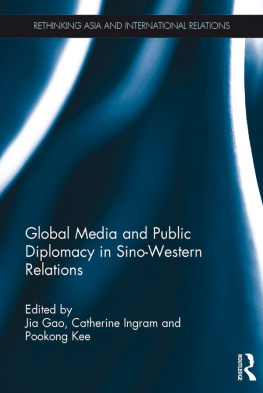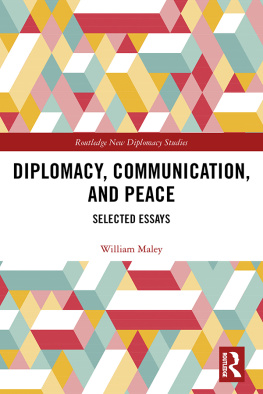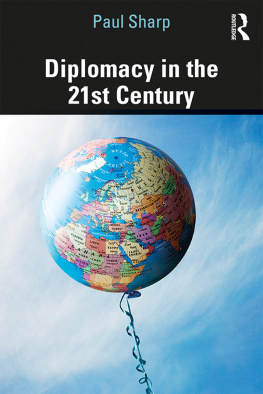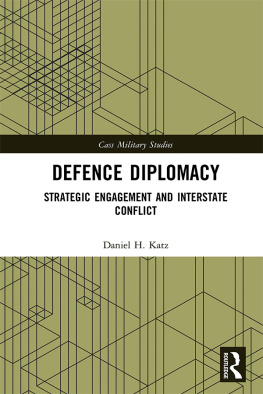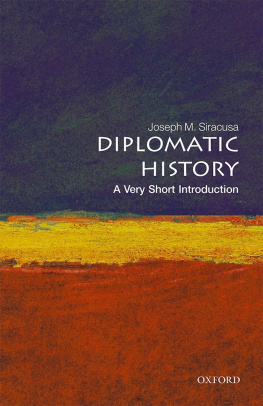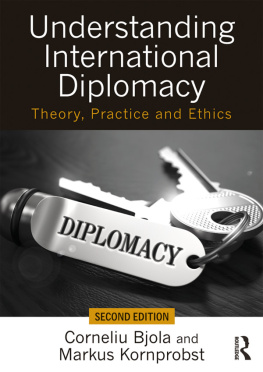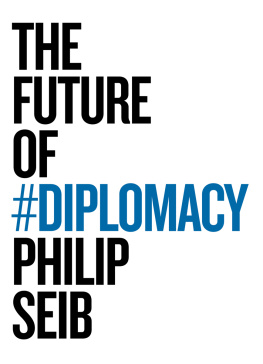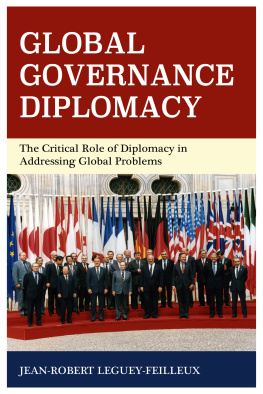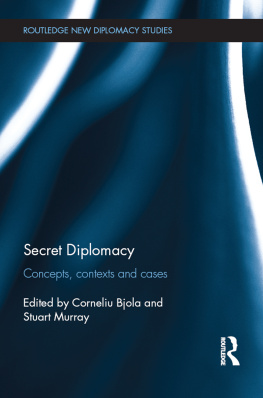Bjola Corneliu - Digital diplomacy : theory and practice
Here you can read online Bjola Corneliu - Digital diplomacy : theory and practice full text of the book (entire story) in english for free. Download pdf and epub, get meaning, cover and reviews about this ebook. year: 2015, publisher: Routledge, genre: Politics. Description of the work, (preface) as well as reviews are available. Best literature library LitArk.com created for fans of good reading and offers a wide selection of genres:
Romance novel
Science fiction
Adventure
Detective
Science
History
Home and family
Prose
Art
Politics
Computer
Non-fiction
Religion
Business
Children
Humor
Choose a favorite category and find really read worthwhile books. Enjoy immersion in the world of imagination, feel the emotions of the characters or learn something new for yourself, make an fascinating discovery.
- Book:Digital diplomacy : theory and practice
- Author:
- Publisher:Routledge
- Genre:
- Year:2015
- Rating:5 / 5
- Favourites:Add to favourites
- Your mark:
Digital diplomacy : theory and practice: summary, description and annotation
We offer to read an annotation, description, summary or preface (depends on what the author of the book "Digital diplomacy : theory and practice" wrote himself). If you haven't found the necessary information about the book — write in the comments, we will try to find it.
This book analyses digital diplomacy as a form of change management in international politics. The objective of the book is to theorize what digital diplomacy is, assess its relationship to traditional forms of diplomacy, examine the latent power dynamics inherent in digital diplomacy, and assess the conditions under which digital diplomacy informs, regulates, or constrains foreign policy. Organized around a common theme of investigating digital diplomacy as a form of change management in the international system, it combines diverse theoretical, empirical, and policy-oriented chapters centered on international change. This book will be of much interest to students of diplomatic studies, public diplomacy, foreign policy, social media and international relations-- Read more...
Abstract: This book analyses digital diplomacy as a form of change management in international politics.The recent spread of digital initiatives in foreign ministries is often argued to be nothing less than a revolution in the practice of diplomacy. In some respects this revolution is long overdue. Digital technology has changed the ways firms conduct business, individuals conduct social relations, and states conduct governance internally, but states are only just realizing its potential to change the ways all aspects of interstate interactions are conducted. In particular, the adoption of digital diplomacy (i.e., the use of social media for diplomatic purposes) has been implicated in changing practices of how diplomats engage in information management, public diplomacy, strategy planning, international negotiations or even crisis management. Despite these significant changes and the promise that digital diplomacy offers, little is known, from an analytical perspective, about how digital diplomacy works. This volume, the first of its kind, brings together established scholars and experienced policy-makers to bridge this analytical gap. The objective of the book is to theorize what digital diplomacy is, assess its relationship to traditional forms of diplomacy, examine the latent power dynamics inherent in digital diplomacy, and assess the conditions under which digital diplomacy informs, regulates, or constrains foreign policy. Organized around a common theme of investigating digital diplomacy as a form of change management in the international system, it combines diverse theoretical, empirical, and policy-oriented chapters centered on international change. This book will be of much interest to students of diplomatic studies, public diplomacy, foreign policy, social media and international relations--
This book analyses digital diplomacy as a form of change management in international politics. The objective of the book is to theorize what digital diplomacy is, assess its relationship to traditional forms of diplomacy, examine the latent power dynamics inherent in digital diplomacy, and assess the conditions under which digital diplomacy informs, regulates, or constrains foreign policy. Organized around a common theme of investigating digital diplomacy as a form of change management in the international system, it combines diverse theoretical, empirical, and policy-oriented chapters centered on international change. This book will be of much interest to students of diplomatic studies, public diplomacy, foreign policy, social media and international relations
Bjola Corneliu: author's other books
Who wrote Digital diplomacy : theory and practice? Find out the surname, the name of the author of the book and a list of all author's works by series.



